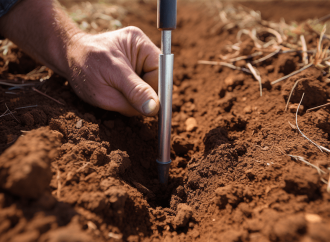Engineering is a career field that offers an astounding range of options. Its focus is on solving problems. It may also involve the creation of artificial organs and life-saving medical devices, finding new cleaner energies or tackling world hunger. Engineers use their store of verified, systematized knowledge to create the world of tomorrow. They mix
Engineering is a career field that offers an astounding range of options. Its focus is on solving problems. It may also involve the creation of artificial organs and life-saving medical devices, finding new cleaner energies or tackling world hunger.
Engineers use their store of verified, systematized knowledge to create the world of tomorrow. They mix exactitude with chaos in order to bring visions into sharp focus. This is why it’s important for them to have the right engineering document management strategy.
Problem-Solving Skills
Problems arise on a daily basis for engineers, and they must be able to solve these problems in a timely manner. This is called engineering thinking, and it must be based more on facts than on guesswork. It is important for any professional engineer to have a process they follow when it comes to solving problems. For example, engineers should document all relevant data, define the problem, and identify root causes as well as possible solutions.
The first step is to carefully read the problem. This step is often skipped by young engineers, which can lead to problems since it’s not always possible for them to solve a particular problem without all the necessary information. In order to avoid missing any necessary information, an engineer should take the time to read the problem several times to make sure that they understand it fully.
Once an engineer has gathered all of the information that they need, they will begin to research. This could involve taking physical measurements or reviewing patents. It could also include examining the results of laboratory experiments or analysing data from opinion polls. It can be helpful to examine past solutions to similar problems to learn from their experiences.
After the research phase, an engineer will start brainstorming and look for possible solutions. Often, they will create a short list of options and choose the most appealing one based on their experience and knowledge. They will then create a detailed plan on how to implement the solution and evaluate its efficacy.
It is crucial that an engineer communicates effectively with the team members during this process. You can do this by asking questions and inviting others to share their ideas. Also, it is important to remember that the solution might not be as obvious at first. It is therefore important that an engineer is able to explain his reasoning in detail. A strong communication skill can help an engineer complete their work on schedule and stay on task.
Creativity
Engineering is not an area that requires a great deal of creativity. It is a discipline that has precise rules, formulas, and procedures. It requires a strong understanding of mathematics and science. When it comes to solving problems and generating new ideas, engineers must be creative and innovative. This is a necessary skill because there is no one right answer to an engineering problem. There are many possible solutions and the engineer needs to be able choose one that is both cost-effective and practical.
Creativity in engineering can be difficult to quantify, but there are some clues as to how creative engineers think. Creative people, for example, tend to see things others overlook or dismiss. Engineers can fix a heart-valve that becomes dangerously thin as it expands when it pumps more.
Many creativity studies are conducted through interviews and surveys. However, some experiments have been conducted to evaluate the creativity of engineering students. For example, some studies have compared the judgements of industrial designers and engineers regarding products, while others have investigated how different instructions or teaching techniques can inspire higher levels of creativity in engineering students.
Scientists and engineers who are creative are characterized by their unconventional thinking, refusal to accept conventional or standard answers, and a tendency of exploring all options and alternatives. This is a positive thing because it means that they can find more solutions to problems compared to non-creative engineers. It allows them to avoid the danger of relying solely on existing technology which could limit their options.
Some creative people also describe having an insatiable curiosity about all aspects of the world around them. This can be a sign for a creative person, but it could also be an obsession leading to 60-80-hour workweeks.
People in authority may have a difficult time dealing with engineers who are passionate about their ideas. They often view them as loose cannons who need to be controlled, especially when these engineers are young and eager. They are often told to abandon a project their managers do not like, even if they believe it is an excellent idea.
Patience
It’s important that engineers have patience because it helps them stay cool at work. A person who is patient can handle the ups, downs, and challenges of working with others, including managers and end-users, in a calm manner. They can also wait for the right time to implement changes instead of rushing things just to be done with a project. Patient people can be excellent mentors to younger members of their team, because they teach them how stay calm under pressure.
It takes a lot of patience to be a successful engineer. You will have to deal a lot with setbacks and delays, so you need to manage your expectations.
For example, when you’re trying to implement a change and it’s taking longer than anticipated, you can still be productive by explaining that the delay is worth it in terms of greater stability for the system, an improved user experience, or better preparation for future features. This type of reasoning is much more appreciated than simply giving up.
Attention To Detail
Attention to detail is an essential skill for many professions including engineering. It is important to be able to pay attention to small details and ensure that all aspects of the project are covered accurately and thoroughly. This includes tasks like reviewing work, ensuring that all information is accurate and following up with others to ensure that they have fulfilled their obligations. It is also important to be able to plan your time and manage it effectively. This is crucial because it helps you to meet deadlines while delivering high-quality results.
Engineers with a strong attention to detail can produce high quality work free of errors. This is crucial because even small errors can have an impact on a project’s outcome. For example, a grammatical or numerical error in an important email may cause confusion and delay in communication, while accounting mistakes can have significant financial implications for the business. Similarly, design mistakes can affect brand image and customer trust.
Employers are looking for candidates who pay attention to details because they will be more thorough and accurate with their work. This can increase efficiency and reduce costs because supervisors will not have to correct or review inaccurate work. It helps ensure that all aspects are considered, which can lead higher-quality results and reliable work processes.
During the interview, candidates can demonstrate their attention to details by providing examples of past projects that required a high degree of diligence or accuracy. This can help to prove their competency in the role and set them apart from other applicants. They can, for example, explain how they proofread before sending their work or how they used a particular tool to identify discrepancies.
Attention to detail requires practice and dedication. Some ways to improve this skill include maintaining a well-organized workspace, setting realistic timelines for tasks and utilising productivity tools like calendars and task management platforms. It is also beneficial to participate in activities that require a lot of concentration, such as programming or data analysis. These activities can help develop patience and focus, both of which are important components for paying attention to details.










